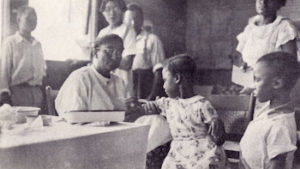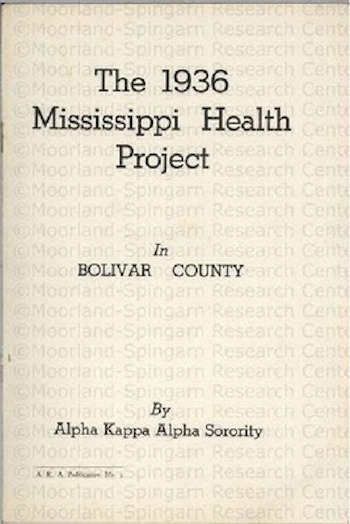
*The Mississippi Health Project is celebrated on this date in 1935. This healthcare project was an initiative sponsored by the Alpha Kappa Alpha Sorority during the Great Depression.
The purpose of the Mississippi Health Project was to raise health awareness among Mississippi Delta residents who did not have access to health care. The initiative lasted for six years until World War II. Mobile clinics were set up underneath trees and where citizens gathered. One of the many participants was Dorothy Boulding Ferebee.
Surgeon General Thomas Parran called the project "one of the greatest efforts of volunteer public health" he had ever seen. At the beginning of the twentieth century, inequality was rapid in the Deep South. Jim Crow was the way of life around the South. Many Southern African Americans worked in low-paying jobs, such as maids, laborers, and farmhands (sharecroppers) in "separate but equal" facilities. At the time, blacks did not have access to medical care or clinics. During the project, Mississippi's Health Department did not treat African Americans due to the segregation of facilities.

Often, African Americans had to walk miles for health care, which was generally substandard. Their socioeconomic lifestyle was also poor at the time since blacks did not have the same opportunities as whites. During the late 1990s, U.S. Senator Thad Cochran (R-MS) and a group of Jackson residents converted a former retail mall into a major medical facility in the region.
In 2006, Alpha Kappa Alpha paired with the National Institutes of Health (NIH) to celebrate the seventy-first anniversary of the Mississippi Health Project. International President Linda White commented on the necessity to bring attention to the healthcare in the area: "Our members began working with the NIH in a campaign to reduce the risks of sudden infant death syndrome among African-American infants. We are happy to expand our relationship to make a real impact on reducing health disparities."
The Jackson Medical Mall is now home to clinics and offices belonging to the University of Mississippi Medical Center (UMMC), Jackson State University, and Tougaloo College educational facilities. Also based out of the mall is the Jackson Heart Study, supported by the National Heart, Lung, and Blood Institute and the National Center for Minority Health and Health Disparities.
To Become a Registered Nurse
To Become a Surgeon
To become a doctor